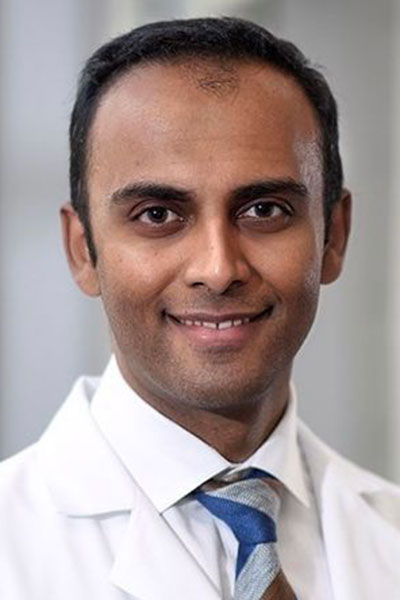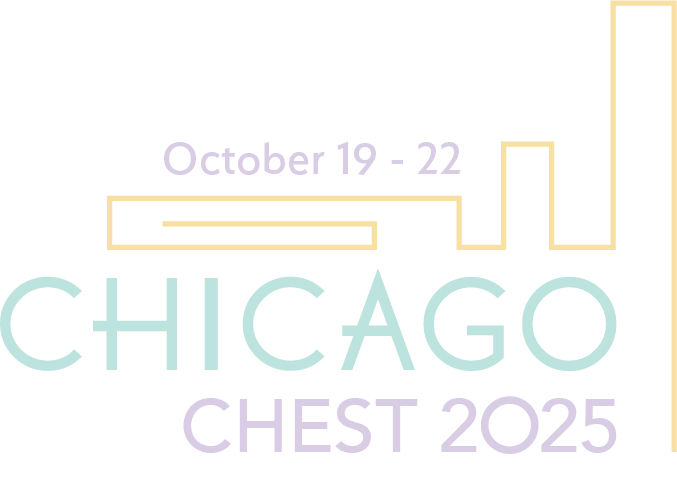The field of lung transplantation has transformed over the past two decades, and surgical possibilities and approaches in preoperative and postoperative care continue to rapidly evolve.
Four experts will review areas of debate that have resulted from these developments during the CHEST 2025 session Lung Transplantation Hot Takes: Controversies and Opportunities at 8 am CT on Wednesday, October 22, in McCormick Place, Lakeside Center, Room 352.

Session Chair Anupam Kumar, MD, FCCP, will open the discussion with a presentation on the expanding age range for lung transplant candidates.
“We have moved the line. Twenty years ago, few centers would be willing to consider patients above the age of 65; but now, more and more centers are able to provide good outcomes for patients over 65, with some centers able to push that age to above 70 for the right candidate,” said Dr. Kumar, Medical Director of the Lung Transplantation Program at the University of Minnesota.
Dr. Kumar will share how this expanded age range is reflected in national and international trends. He will also review some of the inherent challenges and nuances in care for patients at the upper end of this viable age range.
Age will also be a consideration in the presentation from Session Co-Chair Gloria Li, MD, who will focus on the latest clinical discoveries in identifying and caring for patients who go through a repeat lung transplant. Because repeat lung transplants are surgically complex and complicated, they have generally been reserved for younger patients. Dr. Li, Assistant Professor and Interim Medical Director at Baylor College of Medicine, will examine how new criteria can be applied in identifying viable candidates within this range of younger patients.
“We know that outcomes after second transplants are inferior compared to the first transplant, but we can offer it to a select group of patients, and Dr. Li will focus on who those patients are and what the many nuances are for selecting second-transplant candidates,” Dr. Kumar said.
Ayodeji Adegunsoye, MD, PhD, FCCP, will discuss how telomeres affects cellular aging and how they might factor in caring for lung transplant patients. In particular, Dr. Adegunsoye, Assistant Professor and Scientific Director of the Interstitial Lung Disease Program at University of Chicago School of Medicine, will examine how our understanding of telomeres might affect postoperative recovery and the intricacies of managing patients who have affecting conditions such as short telomere syndrome.
Maria Crespo, MD, FCCP, Professor of Clinical Medicine and Medical Director of the Lung Transplant Program at Penn Medicine, will discuss bridging strategies for lung transplants that involve use of mechanical ventilation and extracorporeal membrane oxygenation for patients who are critically ill.
Dr. Kumar said that all these factors—expanded age range, expanded possibilities for patients with more advanced illnesses, improved lung allocation logistics, and more—have contributed to the increased volume of successful lung transplants. And he expects this year’s “hot takes” to provide a springboard for future changes.
“There will be a lot more involvement from genetic studies and how to apply precision medicine and AI in the field of lung transplantation. And there is considerable work being done in the logistics of moving a lung from one part of a country to another,” Dr. Kumar said. “I cannot say what all of our future conversations will be, but the field of lung transplantation in the next five to 10 years will continue to have a lot of exciting innovation.”

Call for Topics Is Open
Feeling inspired by all the great sessions in Chicago? Help shape the curriculum for CHEST 2026, October 18 to 21 in Phoenix, by submitting topic ideas from areas you’re passionate about, topics affecting your practice, or new technologies you’d like to learn more about. The submission deadline is Tuesday, December 2, at 2 pm CT.


